Premium Only Content
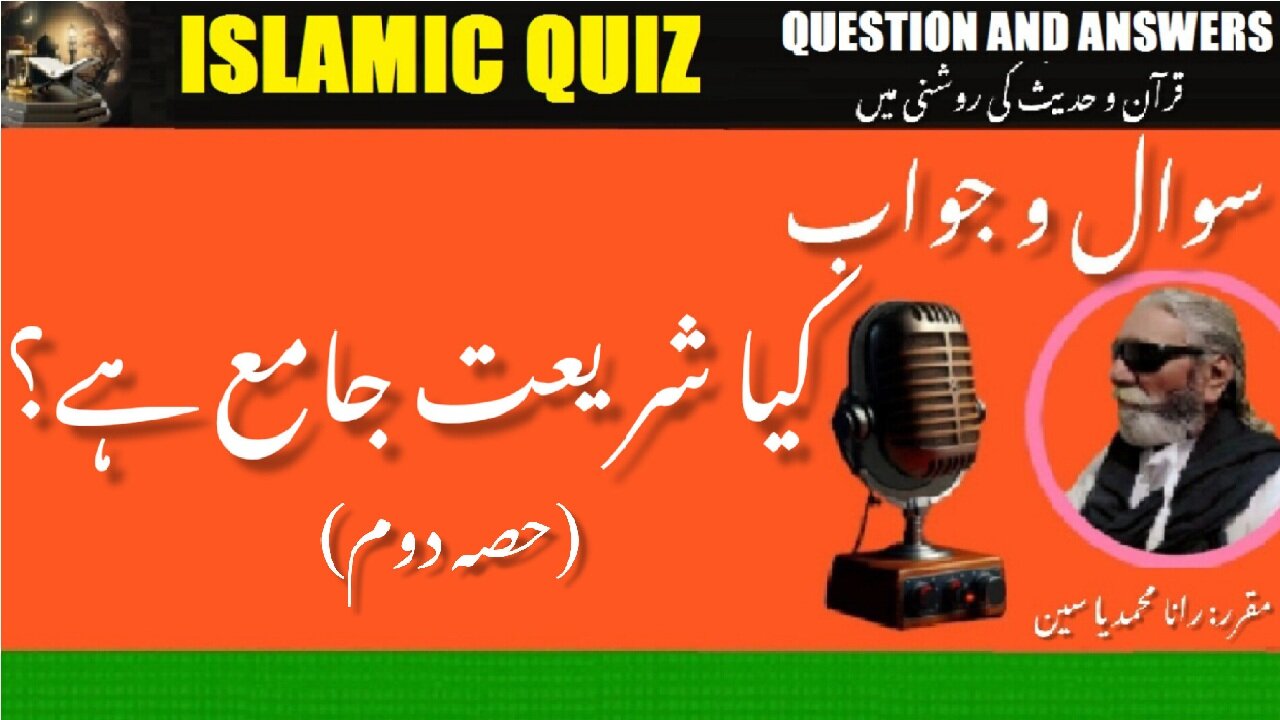
Is Shari`ah Comprehensive| | کیا شریعت جامع ہے؟
@islamichistory813 #Shari`ah #IslamicLaw #LegalFramework #MuslimLife #FamilyLaw #Economics #Governance #ModernWorld
Is Shari`ah Comprehensive?
Asslamoalaikum, sisters, brothers friends and elders, we were describing yesterday that Is Shari`ah Comprehensive? and were end reached at where Allah said in Surah An-Nisa’ verse 119 {“and I will command them so they will change the creation of Allah”.}
The apparent meaning of this verse indicates that changing the creation of Allah will lead to being cursed
The second example: it was narrated that Ash-Shafi‘i (may Allah have mercy on him) was sitting in Al-Masjid Al-Haram, and he said: You will not ask me about anything but I will give you an answer to it from the Book of Allah, may He be Exalted. So a man said: What do you say about a pilgrim in Ihram who kills a wasp?
He said: He does not have to do anything [as expiation] The man said: Where is that in the Book of Allah? He said: Allah, may He be Exalted, says (interpretation of the meaning):
[Al-Nashr verse 7] {And whatever the Messenger has given you - take.}
Then he mentioned a report, with an Isnad [chain of narration] going back to the Prophet (blessings and peace of Allah be upon him), that he said: “You must adhere to my Sunnah and the way of the Rightly-Guided Caliphs who come after me.” Then he mentioned, with a chain of narration going back to ‘Umar (may Allah be pleased with him) that he said: The pilgrim in Ihram may kill a wasp.
Al-Wahidi (may Allah have mercy on him) said: Thus he gave an answer quoting from the Book of Allah and deriving this ruling by going through three levels of narration.
I say: There is another way of proving it that is clearer, which is that in principle, the wealth of Muslims is protected. Allah, may He be Exalted, says (interpretation of the meaning):
[Al-Baqarah verse 286]
{It will have [the consequence of] what [good] it has gained, and it will bear [the consequence of] what [evil] it has earned.}
[Muhammad verse 36] {and [He will] not ask you for your properties}
[An-Nisa’ verse 29]{do not consume one another's wealth unjustly but only [in lawful] business by mutual consent.}
Thus Allah forbids consuming people’s wealth except through trade. So when there is no trade, that means that it remains prohibited [to consume people’s wealth]. These general rulings dictate that there should be no penalty on the pilgrim who kills a wasp at all, and that is because adhering to the general meaning of these principles dictates that this should be the ruling.
The third example: Al-Wahidi (may Allah have mercy on him) said: It was narrated in the Hadith about the hired labourer who committed Zina that his father said to the Prophet (blessings and peace of Allah be upon him): Judge between us in accordance with the Book of Allah.
So he (blessings and peace of Allah be upon him) said: “By the One in Whose hand is my soul, I shall surely judge between you in accordance with the Book of Allah.” Then he ruled that the hired worker should be flogged and banished, and that the woman should be stoned if she admitted guilt.
Al-Wahidi (may Allah have mercy on him) said: Flogging and banishment are not mentioned in the text of the Quran. This indicates that whatever ruling was given by the Prophet (blessings and peace of Allah be upon him) is essentially the same as what is in the Book of Allah.
I say: This example is correct, because Allah, may He be Exalted, says (interpretation of the meaning):
{And We revealed to you the message that you may make clear to the people what was sent down to them.} [An-Nahl 16:44]
Everything that the Messenger (blessings and peace of Allah be upon him) explained and made clear is included in the meaning of this verse.
From these examples, it is proven that as the Quran indicates that ijma‘ (scholarly consensus) constitutes proof, and that the Ahad report constitutes proof, and that Qiyas (analogy) constitutes proof, every ruling that is established in one of these three ways is in fact proven by the Quran. It is in this way that we may understand the words of Allah:
[Al-An‘am verse 38]{We have neglected nothing in the Book.}
This is the way to understand this verse, and this way of understanding it is supported by the majority of jurists…
2- The second view with regard to the meaning of this verse is that of those who say that the Quran alone is sufficient and all rulings may be found in it.
The way to explain this is by noting that in principle everyone is free of obligations, and for any obligation there should be separate proof. Mentioning in specific texts the categories in which there is no obligation is impossible, because the categories in which there is no obligation are unlimited, and mentioning in specific texts that which is unlimited is not possible. Rather mentioning in specific texts is only possible in the case of that which is finite.
For example, there are a thousand obligations that Allah has enjoined on people; He mentioned them in the Quran, and He instructed Muhammad (blessings and peace of Allah be upon him) to convey that thousand to people. Then after that, He said:
[Al-An‘am verse 38 {We have neglected nothing in the Book.} ]
Thus what it means is that there is no other obligation that Allah has enjoined upon us after that thousand. Then He confirmed that in the verses:
[Al-Ma’idah verse 3]{This day I have perfected for you your religion.}
[Al-An‘am verse 59] {nor [is there] anything fresh or dry, but [it] is written in a Clear Record.}
This is the explanation of the view of these people. Further discussion of this matter is to be found in the books of Usul Al-fiqh (the fundamentals of jurisprudence). And Allah knows best." (Tafsir Ar-Razi 12/527).
Note:
The correct view regarding the verse in which Allah, may He be Exalted, says in Surah Al-An‘am verse 38] {We have neglected nothing in the Book.} is that what is meant by the Book here is Al-Lawh Al-Mahfuz, in which Allah, may He be Exalted, wrote the decrees of His creation. This is what is narrated from ‘Abdullah ibn ‘Abbas (may Allah be pleased with him) in his commentary on this verse.
But a better verse to quote as evidence in this context is the verse in which Allah, may He be Exalted, says:
[An-Nahl verse 89] {And We have sent down to you the Book as clarification for all things.}
See: Tafsir Ibn Jarir (9/234); Tafsir Ibn Kathir (3/253); As-Sa‘di (p. 255).
Fiqh of contemporary issues
If a novel issue arises of which there is no clear mention in the Book of Allah, may He be Exalted, or in the Sunnah of His Messenger (blessings and peace of Allah be upon him) – as in the case of some medical and economic issues, for example, such as artificial insemination, genetic engineering, and dealing in crypto currencies, for example – then the scholars study and strive to find a ruling on it, by means of analogy and deriving rulings on that basis, or by applying the general guidelines of Shari`ah, taking into consideration the objectives of Shari`ah .
No matter what the issue is, it is possible for these scholars to work out the Shar`i ruling, even by referring to some of the basic principles, because there are things which are either in principle permitted or forbidden, if there is no evidence to suggest otherwise, so it is not possible that there could be any issue for which there is no ruling in Islamic Shari`ah.
For more information, please see: Tafsir Adwa’ Al-Bayan by Ash-Shinqiti, on the verse 9 of surah Al-Isra’ {Indeed, this Quran guides to that which is most suitable.}
In conclusion, the Islamic system of law (Shari`ah) provides all that people need of rulings regarding all their affairs, because it is the final system of law, the perfect and complete religion, as Allah, may He be Exalted, says (interpretation of the meaning):
and Allah Almighty said in surah Al-Ma’idah verse 3
{This day I have perfected for you your religion and completed My favour upon you and have approved for you Islam as religion.}
And Allah knows best.
-
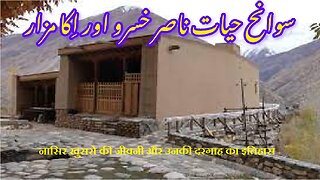 6:58
6:58
ISLAMIC HISTORY
13 hours agoNasir Khusraw नासिर ख़ुसरो ناصر خسرو کی سوانح عمری اور ان کے مزار کی تاریخ
1 -
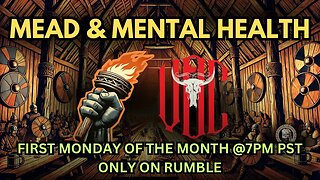 2:13:28
2:13:28
I_Came_With_Fire_Podcast
7 hours agoMEAD & MENTAL HEALTH WITH I CAME WITH FIRE AND VOC!!!
38K4 -
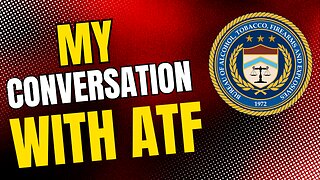 1:10:04
1:10:04
John Crump Live
4 hours ago $2.59 earnedYes I talked To The ATF
30.7K3 -
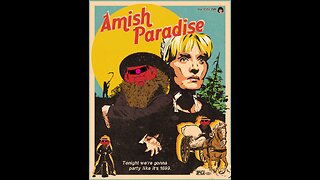
Amish Zaku
7 hours agoVerDanceKey Warzone - Birthday Fun
33.1K5 -
 LIVE
LIVE
NeoX5
4 hours agoKhazan: The Road Less Taken | Part 5-2 | Rumble Studio | Rumble Gaming
230 watching -
 LIVE
LIVE
TwinGatz
10 hours ago🔴LIVE - He Is Doing His Best | ARMA Reforger
485 watching -
 54:40
54:40
LFA TV
14 hours agoSee God in the Trade War | TRUMPET DAILY 4.7.25 7PM
55.5K12 -
 1:18:30
1:18:30
Sarah Westall
7 hours agoNew Study: EMFs Literally Put You into a Brainwave Cage; Reclaiming your Mind w/ Ian & Philipp
71.3K19 -
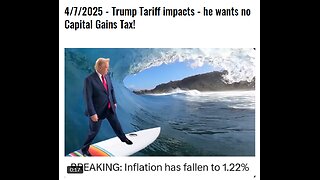 35:54
35:54
SantaSurfing
8 hours ago4/7/2025 - Trump Tariff impacts - he wants no Capital Gains Tax! Inflation falls to 1.22%!
41.9K27 -
 59:17
59:17
We Like Shooting
18 hours ago $2.62 earnedDouble Tap 404 (Gun Podcast)
28K